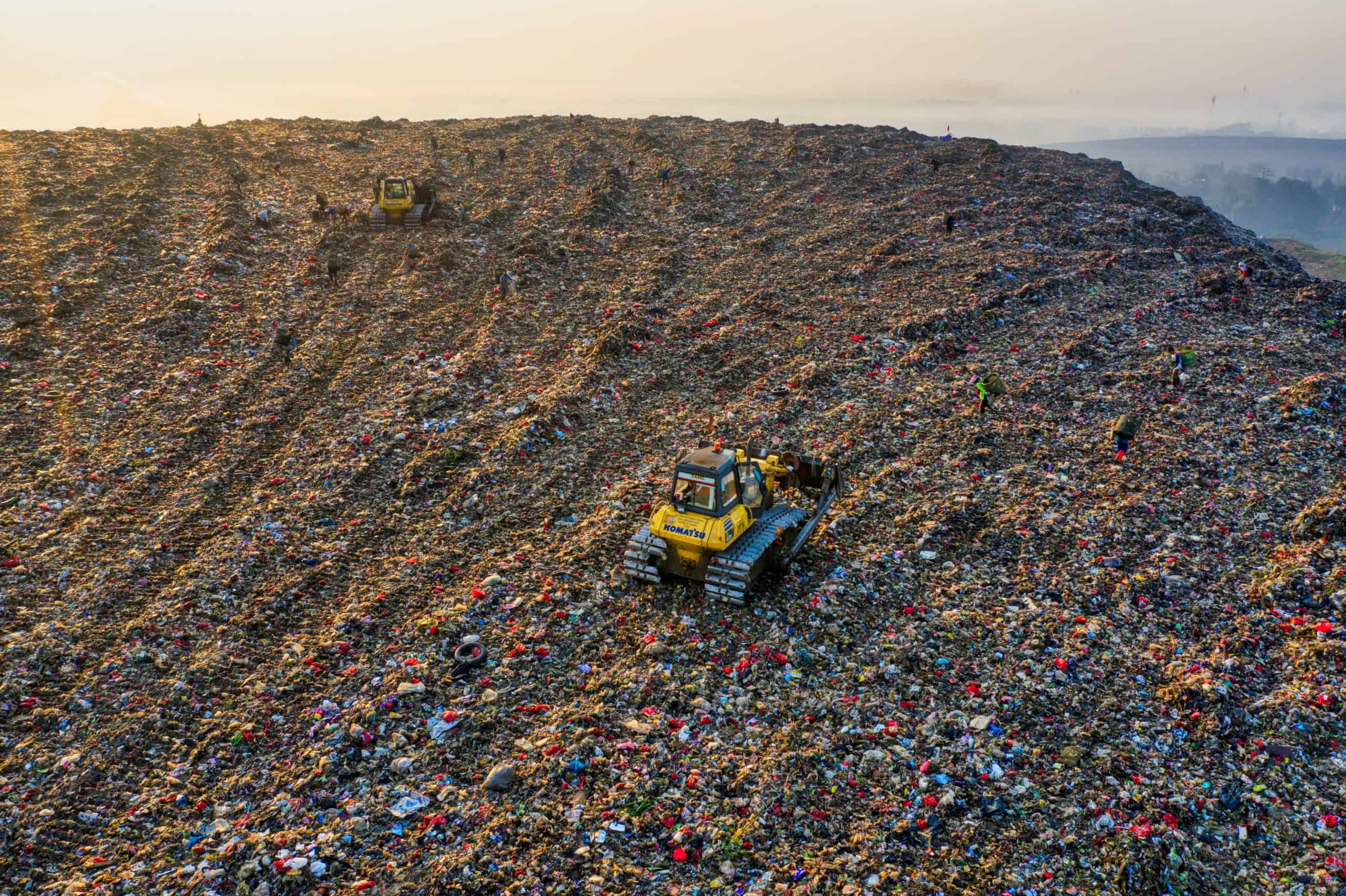Do you live or work in California? If so, you have probably heard of California’s Short-Lived Climate Pollutant Reduction Strategy and the law that was enacted in 2016 as SB1383. That’s a mouthful, but in short, it means that a new environmental law has passed that requires Californians to separate food scraps. If you’re not sure what that means for your residence or your business, you’ll want to read on to find out.
Starting January 1st, 2022, every citizen, residential building, or commercial entity that generates any food scraps, must separate those food scraps and utilize a local process for getting those scraps to composting or other local options instead of putting them in the trash.

Why is this law so important?
Landfills are vast areas of land where everything that is thrown out stays…forever. Landfills will never get smaller because more garbage is constantly added. Unfortunately, somewhere between 24% and 40% of everything that goes to landfill is organic waste. That’s really bad for 3 reasons:
- Organic waste (such as food scraps and plants) do not break down in a landfill. Because landfills are packed so tight, there is no air to facilitate the natural degradation process.
- Because organic waste can’t break down, it will instead produce methane gas. This is a major contributor to global warming since methane gas is about 25 to 80 times more harmful than carbon dioxide.
- Compost is extremely beneficial to the environment in lots of ways, so when organic waste goes to a landfill instead of a composter, the benefit will never be recovered.
To learn more details about the bill and what has been done to help you be compliant, please go visit CalRecycle and follow their guidelines.
Are there penalties if I don’t comply?
December 2022 Update: AB 1985 was recently signed into law. Instead of imposing penalties beginning in 2023 if procurement targets were not reached, jurisdictions now have until January 1, 2025, to fully meet their procurement requirement without penalty.
Jurisdictions will still need to procure:
- 30% of their targeted recovered organic waste products by January 1, 2023
- 65% by January 1, 2024
- 100% by January 1, 2025.
Penalties will only be imposed if the 100% mark is not reached by January 1, 2025. Start where you want to finish today. It’s best to take care of the planet, rather than receive a nasty fine!
Where do I start?
This law is aimed at turning your food scraps and other organic waste into productive compost. To do this, all you need to do is separate the organic waste you generate into the proper waste stream. Depending on your area, and the resources around you, this could be as simple as putting it in your green bin, or may require you to drop it at a local collection depot.
If you’re confused about how to sort your waste, CalRecycle has provided free signage to help you identify which waste items should go into each bin. It has been mandated to use your local jurisdiction’s signage, so we recommend checking your local jurisdiction’s website for proper signage. We also wrote a blog about how to easily identify organic waste.
It has been proven that the best way to divert your food scraps is to put it in a bin lined with a certified compostable bag to compost at a processing facility. Plastic bags are a contaminant and will not be accepted at any composting facility; paper or fiber bags are accepted but will not contain the wet material and could make your collection process and location messy and less sanitary. Using certified compostable liners in your bins will keep the moisture and everything else inside the bag until it gets to the processing facility. This makes for a clean system from collection through to processing.
EcoSafe can help!
If you have questions on what you need to start your separation program and how to keep it clean and contaminant free, please contact EcoSafe Zero Waste. For 20+ years, EcoSafe has been helping waste generators separate their food scraps while keeping the program free from contamination.
It is important to be safe, clean, and sanitary when dealing with any waste stream. We can help make sure you have the proper bins, proper bags, and proper educational materials you need to comply with SB1383. It’s not only the right thing to do, it’s the law.
Not only will this go a long way to greatly reducing methane being released into our environment, it will extend the life of municipal landfills for many, many years. So, no more building new landfills, we just need to keep building recycling centers and composting facilities.
For help with starting your food scraps program, please give EcoSafe a call or send us an email at [email protected]. Happy composting!!!
ECOSAFE® ZERO WASTE INC.
[email protected]
Toll Free: 1-855-495-4959
ADDRESS
101 – 19074 22nd Avenue
Surrey, BC CANADA V3Z 3S6
Tel: 1-604-560-5133
Fax: 1-604-560-5131
Food loss and waste occur at each stage of the supply chain. The biggest proportion (about 37%) happens in the home.
ReFED, 2021
